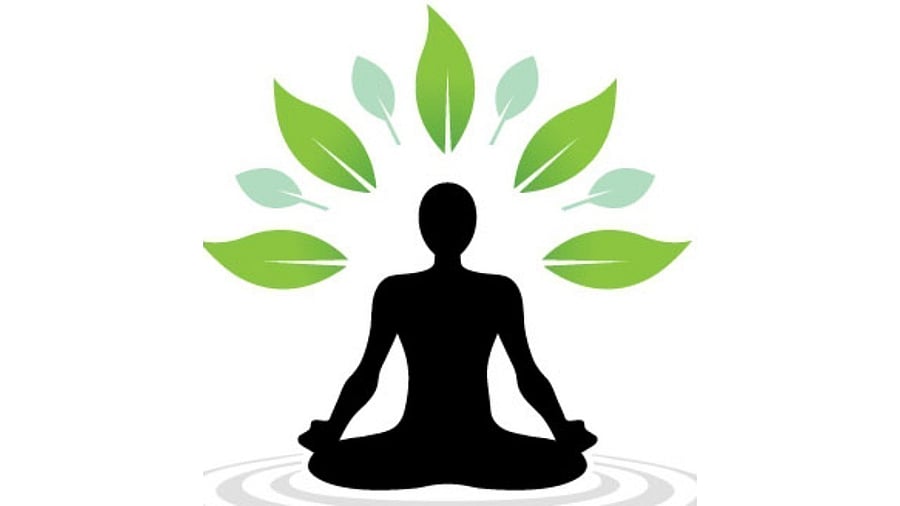
Oasis logo.
Credit: DH Illustration
Corporates today are giving their employees time off to learn and practice mindfulness. They are also investing in mindfulness retreats. Does this imply that mindfulness is a tool which improves productivity or is it just a lifestyle fad?
Whatever mindfulness does or is, it is loosely understood as living in the present. Even as the nature of time is such that it is not possible to live in the past or future, the mind is often burdened with nostalgia. A lot of energy also goes into speculation about the future.
The present is allowed to slip away, with no awareness of it. Mindfulness wants us to capture and savour the moment which is the present.
The lifestyle view of mindfulness is very rosy. It has made it a kind of a buzzword promising great joy and happiness. Yoga on the other hand looks at it as a spiritual exploration. It is a quest for the meaning of truth and immortality in a transient and illusory life.
Yoga holds that time is the movement of moments in succession. The movement is transient, irreversible and unreal.
The moment, however, is eternal and real. It is neither the past nor the future and stands still till it moves away. Chronological time can only move forward. The mind, which also has the ability to move, can move into the past, the future or even fantasy.
The awareness of the present moment and the understanding that all else is unreal is called Viveka Gnana. It is an exalted knowledge.
Like all things exalted, attaining it is a rigorous exercise. It is believed to shift the mind from sensory and perceptual misconceptions. It is a deconstruction process which leads to self realisation and detachment. The risk is that a lack of rigour or understanding during the process of deconstruction can lead to anxiety.
The Buddhist middle path, which is also becoming popular again, softens the process for the less adept. This approach is also derived from the concept that the movement of time is unreal and relative while the moment is real.
Acting in the moment, there is no rancour about the past or speculation about the future.
As with yoga the process ideally requires rigour in its practice and a great intensity of meditation, which is best done by monks. What makes it accessible to others is its focus on friendship, empathy and compassion. Corporates investing in mindfulness may well be seeking to bring these elements into their teamwork.